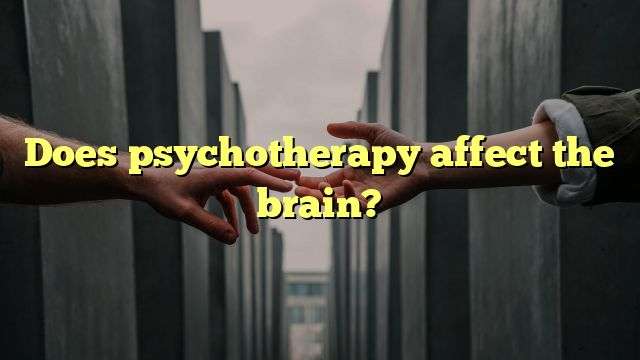The Impact of Psychotherapy on the Brain
Psychotherapy is a form of treatment that helps individuals to understand, manage, and cope with their emotions, thoughts and behaviors. While the effects of psychotherapy on the brain have been studied for decades, recent advances in neuroscience have enabled researchers to gain a better understanding of the neurological changes that take place in the brain during psychotherapy.
How Psychotherapy Affects the Brain
Studies have shown that psychotherapy can lead to measurable functional changes in the brain. Depending on the type of psychotherapy and the psychiatric disorder being treated, these changes can vary. For example, cognitive behavioral therapy (CBT) has been found to reduce activity in the limbic system, a region of the brain associated with emotional regulation, while interpersonal psychotherapy (IPT) has been shown to reduce activity in the frontal cortex, a region of the brain associated with decision-making and social cognition.
In addition to these neurological changes, psychotherapy can also lead to structural changes in the brain. For example, research has found that psychotherapy can lead to an increase in gray matter volume in certain areas of the brain, as well as an increase in synaptic connections between neurons.
The Link Between Psychotherapy and Neuroplasticity
The changes in the brain that occur as a result of psychotherapy can be attributed to a phenomenon known as neuroplasticity. Neuroplasticity is the process by which the brain can change and adapt to new experiences, environments, and stimuli. During psychotherapy, neuroplasticity enables the brain to reshape itself in response to the new information and skills that are being learned.
The Impact of Psychotherapy on Different Psychiatric Disorders
The effects of psychotherapy on the brain vary depending on the type of psychiatric disorder being treated. For example, research has found that psychotherapy can lead to an increase in brain volume in individuals with depression, while a decrease in brain volume has been observed in individuals with anxiety disorders.
In addition, research has shown that the effects of psychotherapy can vary depending on the type of psychotherapy being used. For example, CBT has been found to be particularly effective in treating anxiety disorders and depression, while IPT has been found to be more effective in treating eating disorders.
The Impact of Psychotherapy on Clinical Response
The effects of psychotherapy on the brain also vary depending on the patient’s clinical response. For example, research has found that individuals who respond positively to psychotherapy tend to show an increase in brain volume in the areas associated with emotional regulation, while individuals who do not respond positively tend to show a decrease in brain volume in the same areas.
Conclusion
In conclusion, psychotherapy leads to measurable functional changes in the brain that depend on the psychiatric disorder and the type of psychotherapy being used. Additionally, the effects of psychotherapy on the brain can also vary depending on the patient’s clinical response. Research has shown that psychotherapy can lead to changes in brain volume and synaptic connections, which are attributed to the phenomenon of neuroplasticity. By understanding how psychotherapy affects the brain, clinicians can better tailor their treatments to the individual needs of their patients.
